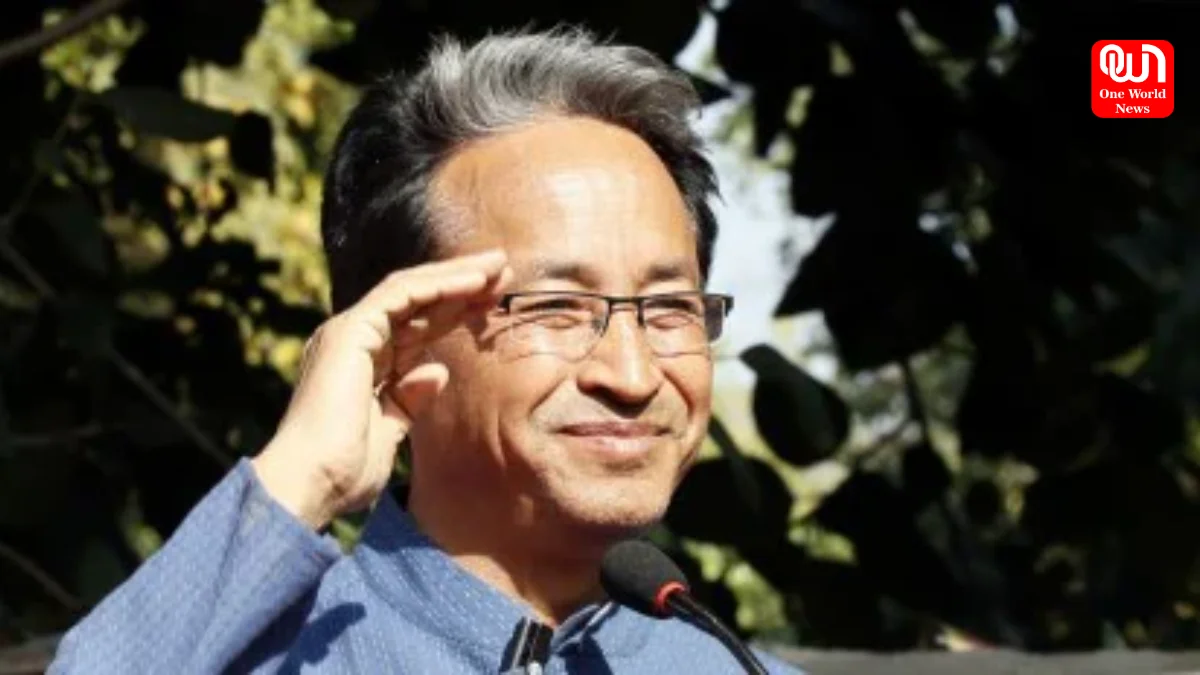The Polyglot Visionary: How Sonam Wangchuk Harnessed Knowledge of 9 Languages to Bring “Failed” Students Into School
Sonam Wangchuk, fluent in nine languages, built schools for “failed” children — now arrested under NSA amid statehood protests.
Knowledge of 9 Languages, Rescuing Rejected Students: The Sonam Wangchuk Story in Light of His Arrest
Introduction: From multilingual educator to controversial detainee
Sonam Wangchuk, the real-life inspiration behind the 3 Idiots character Phunsukh Wangdu, has long been admired as an education reformer and environmental inventor. But recent events have placed him at the center of a storm: arrested under the NSA (National Security Act) after violent protests in Ladakh demanding full statehood.
This twist in his story invites us to revisit what he stood for: the power of language, and the mission to bring “failed” students into the fold of schooling. The tale of how a man fluent in nine languages turned rejection into opportunity remains a vital legacy even now.
Early life, multilingual pursuit, and roots in Ladakh
Born on 1 September 1966 in Leh, Sonam Wangchuk grew up in a remote part of Ladakh with little formal schooling available locally. His mother taught him in the Ladakhi language until he was about nine. Later, he attained an engineering degree from NIT Srinagar.
Driven by curiosity—and by the frustration of linguistic barriers—he over time learned nine languages. In interviews, Wangchuk has described that lacking familiarity with other languages early on spurred him to master them later. He applies this multilingual expertise in education: for example, translating mathematical or scientific ideas into Ladakhi to build students’ foundational understanding.
In short, before becoming an activist, he cultivated a linguistic toolkit to communicate across cultural, regional, and educational divides.
Confronting conventional education: Why many children failed
In Wangchuk’s experience, the mainstream schooling system in remote Himalayan regions often mislabeled children as failures—not because they lacked intelligence, but because instruction ignored their languages, cognitive frames, and lived contexts.
Textbooks delivered in Urdu or English, and teachers speaking in languages unfamiliar to local children, produced gaps in comprehension. Many bright students would fail exams simply because they could not access or relate to the medium of instruction. Wangchuk recognized that failure was systemic, not individual.
He began volunteering tutoring failing students while still studying engineering. Over time he realized that the children most tagged as “failed” were precisely those who needed a different approach, not exclusion. This insight seeded the founding of SECMOL in 1988 (Students’ Educational and Cultural Movement of Ladakh).
Under this philosophy, instead of turning away “failed children,” Wangchuk and SECMOL would admit them, often exclusively, because conventional systems had already let them down.
SECMOL’s radical experiment: Re-admission and re-learning
From its foundation, SECMOL overturned typical admission policies. It became known as a school that accepted students who had flunked in government schools or had been sidelined by regular education.
The pedagogy at SECMOL emphasized experiential learning, peer teaching, self-governance, sustainable infrastructure, and strong incorporation of local language. Instruction often begins in the student’s mother tongue or dialect before gradually introducing textbooks in more widespread languages. This scaffolding reduces alienation and accelerates conceptual grasp.
Wangchuk also designed environmentally friendly houses, solar systems, and demo projects as part of the campus, turning the school itself into a living laboratory. Through these methods, many children formerly labeled “failures” began to succeed academically and personally.
The arrest: Causes, controversy, and implications
In recent weeks, a movement in Ladakh demanding full statehood escalated into violent protests, leading to casualties and imposition of curfews. The government accused Wangchuk of incitement and revoked the FCRA license of one of his NGOs. He was officially arrested under the National Security Act (NSA).
His arrest has sparked debate. Critics argue that the state is punishing a social reformer for political dissent; supporters contend that he overstepped and fomented agitation. Regardless, his detention has renewed public attention on his educational legacy and whether forces that challenged him then are now trying to silence him.
Read more: Viral Dessert of 2025: Lotus Biscoff vs Tiramisu Overload
Why language, failure, and inclusion still matter
Wangchuk’s story is not only about one man’s journey but about broader educational justice. His mastery of nine languages enabled him to speak with children in their own linguistic worlds, rather than speaking at them in alien tongues. This approach dismantles barriers of exclusion.
By insisting on admitting failed students, he challenged the conventional metric of selection based on merit as defined by rote examinations. He offered an alternate metric: the capacity to learn when nurtured in the right environment.
Even now, as his political and legal troubles mount, his model stands as a counterpoint to systems that filter out the marginalized. In regions with linguistic diversity and educational neglect, Wangchuk’s emphasis on language inclusion, respect for local culture, and pedagogical flexibility remain deeply relevant.
Read more: Must-See Visited Places in the World: Top 10 Destinations for Every Traveler
Conclusion: A legacy under pressure
The arrest of Sonam Wangchuk under NSA casts a shadow over his role as a social innovator. Yet the narrative of how he used language mastery to rescue “failed” students and build a different kind of schooling still shines.
His story teaches us that knowledge of multiple languages is more than a skill—it is empathy, trust, and access. That the children branded as failures often wait not for mercy, but for a system to recognize their potential on their terms.
What happens now—to Wangchuk, to SECMOL, to the movement for inclusive education—remains uncertain. But his legacy reminds us: true reform often begins at the margins, where language meets learning, and where “failure” is turned into a second chance.
We’re now on WhatsApp. Click to join.
Like this post?
Register at One World News to never miss out on videos, celeb interviews, and best reads.








